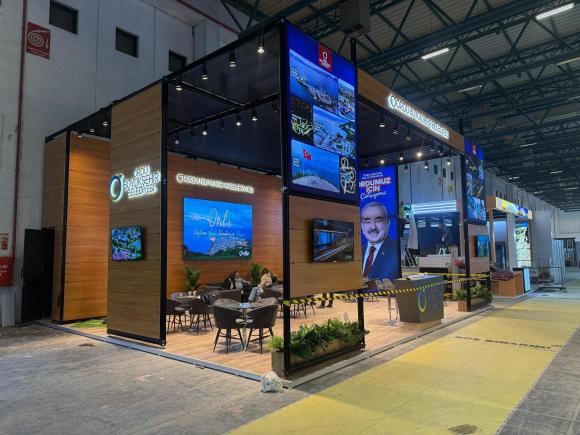7 Ways AI Is Making Home Automation Smarter Than Ever
7 Ways AI Is Making Home Automation Smarter Than Ever the rapid rise of artificial intelligence is transforming the way we live, work, and interact with our surroundings. Nowhere is this impact more evident than in the world of AI for home automation. From energy-efficient systems to voice-activated assistants, AI is making our homes smarter, more intuitive, and more responsive than ever before. Let’s explore seven key ways AI is revolutionizing home automation, reshaping the future of modern living.

1. Personalized Living Spaces
AI-driven smart homes have the remarkable ability to adapt to the habits and preferences of their inhabitants. This personalization extends to everything from lighting and temperature to entertainment choices and daily routines. AI systems analyze patterns over time, learning when you wake up, what music you prefer in the morning, and even the ideal temperature for a cozy evening.
For instance, smart thermostats like the Nest Learning Thermostat use machine learning to create a personalized climate profile based on your daily habits, adjusting heating and cooling to optimize comfort and energy efficiency. This kind of intelligent customization is at the heart of AI for home automation, transforming ordinary living spaces into personalized sanctuaries.
2. Predictive Maintenance and Smart Diagnostics
One of the most practical benefits of AI for home automation is its ability to predict maintenance needs before they become costly problems. AI-powered systems can monitor the health of home appliances, HVAC systems, and plumbing, identifying potential issues through data analysis.
For example, an AI-powered water heater can detect unusual patterns in water usage or pressure, alerting homeowners to potential leaks or blockages before they lead to costly repairs. Similarly, smart washing machines can send alerts when parts are wearing out, preventing unexpected breakdowns and extending the lifespan of appliances.
3. Energy Efficiency and Cost Savings
Energy management is a critical area where AI for home automation is making a significant impact. Smart systems can optimize energy consumption by learning when and where energy is needed most, reducing waste and lowering utility bills.
AI-driven devices like the Ecobee Smart Thermostat use real-time weather data, occupancy sensors, and machine learning to fine-tune temperature settings, maximizing comfort while minimizing energy use. Smart lighting systems can adjust brightness based on natural light levels, while AI-powered power strips can shut off idle devices, eliminating “vampire” power drain.
Additionally, home energy management systems can even integrate with renewable energy sources, like solar panels and home batteries, optimizing energy storage and usage to reduce reliance on the grid.
4. Advanced Home Security and Surveillance
Home security is another area where AI for home automation is proving transformative. AI-powered cameras and smart locks use facial recognition, object detection, and real-time alerts to provide enhanced security. These systems can differentiate between family members, friends, delivery personnel, and potential intruders, reducing false alarms and improving response times.
For instance, the Nest Cam IQ uses advanced AI to recognize familiar faces, alerting homeowners to unexpected visitors while filtering out routine activity. Some systems can even detect unusual behavior patterns, like a door being opened at an odd hour or a window left ajar, providing an additional layer of security.
5. Voice-Controlled Convenience
Voice-activated assistants like Amazon Alexa, Google Assistant, and Apple’s Siri have become the digital concierges of the modern smart home. These AI-driven systems are at the core of AI for home automation, acting as command centers that control lights, thermostats, security cameras, and entertainment systems with simple voice commands.
Beyond basic commands, these assistants are becoming increasingly conversational, understanding context and intent with greater accuracy. For example, saying, “I’m cold,” might prompt a smart thermostat to adjust the temperature, while a simple “Goodnight” could lock doors, turn off lights, and arm the security system.
6. Seamless Device Integration
One of the biggest challenges in home automation is getting different smart devices to communicate effectively. This is where AI for home automation truly shines. AI systems can act as central hubs, integrating devices from various manufacturers into a cohesive, interconnected ecosystem.
Emerging technologies like Matter, a universal smart home protocol, aim to make this integration even smoother, ensuring that devices from different brands can work together seamlessly. This kind of cross-device compatibility is crucial for creating fully automated smart homes where everything from lights to kitchen appliances can be controlled through a single interface.
7. Proactive Health and Wellness Monitoring
AI isn’t just making homes smarter – it’s also making them healthier. From air quality monitors that track pollutants to smart beds that adjust firmness based on your sleep patterns, AI for home automation is enhancing personal well-being in innovative ways.
For instance, smart air purifiers can adjust their filtration levels based on indoor air quality, reducing allergens and improving respiratory health. Meanwhile, wearable devices and smart mirrors can provide real-time health feedback, integrating with smart home systems to create personalized wellness routines.
As the potential of AI for home automation continues to grow, our homes are becoming more than just places to live – they are becoming intelligent environments that anticipate our needs, enhance our well-being, and streamline our daily lives. With advancements in machine learning, natural language processing, and IoT, the smart homes of the future promise a level of convenience, comfort, and security that was once the stuff of science fiction.
From personalized living spaces and predictive maintenance to energy efficiency and voice-controlled convenience, the possibilities are virtually limitless. As AI continues to evolve, our homes will become smarter, safer, and more attuned to our lifestyles, redefining what it means to truly feel at home.





